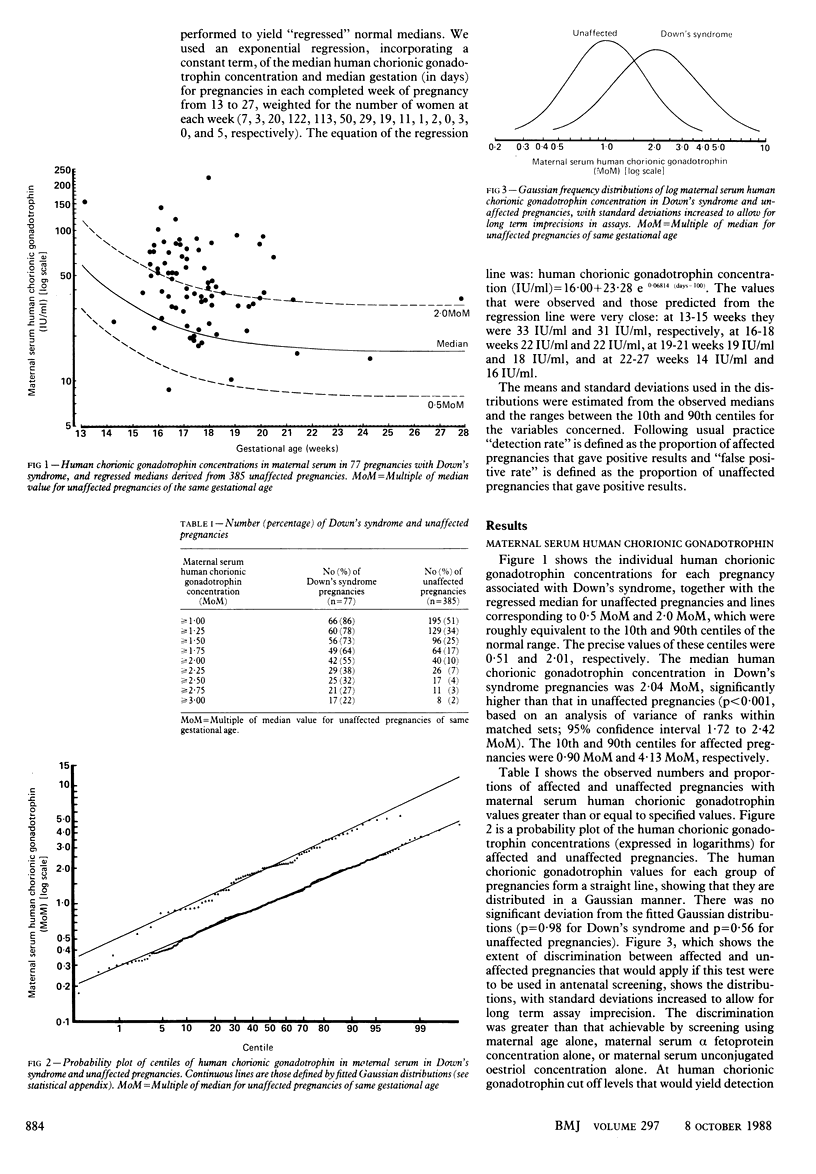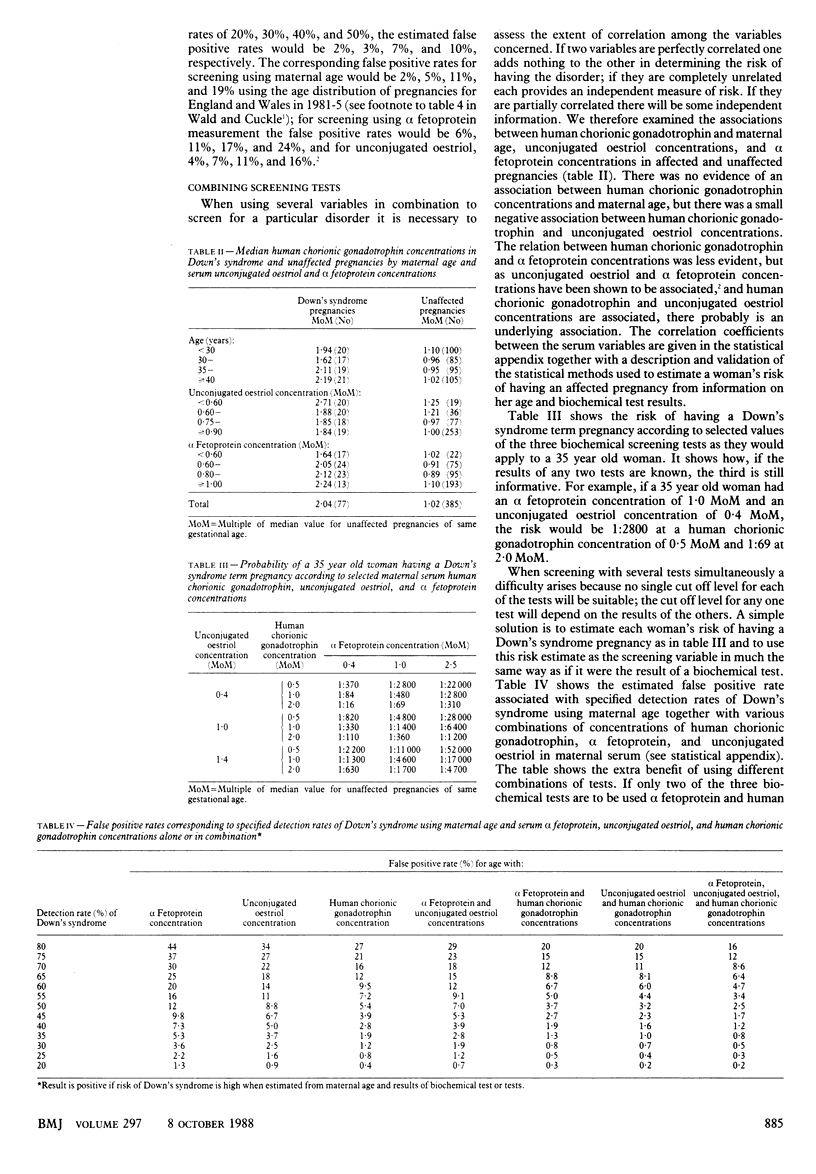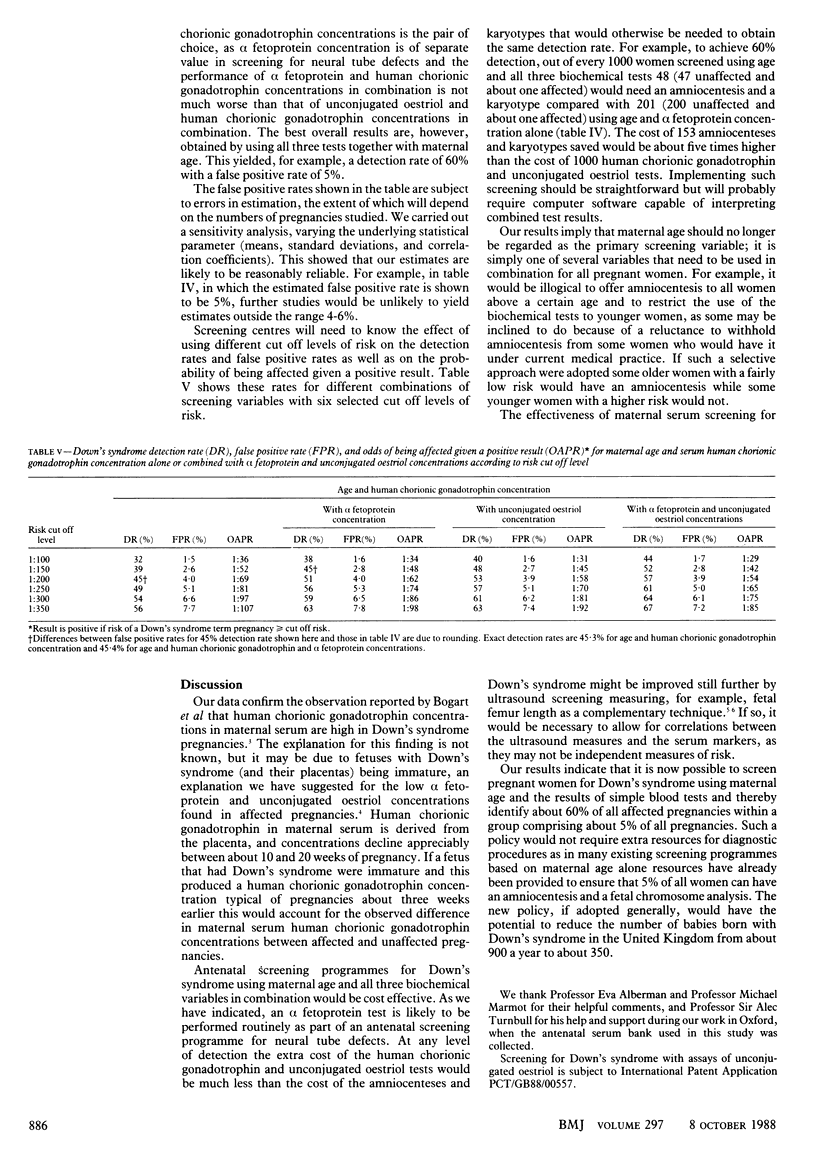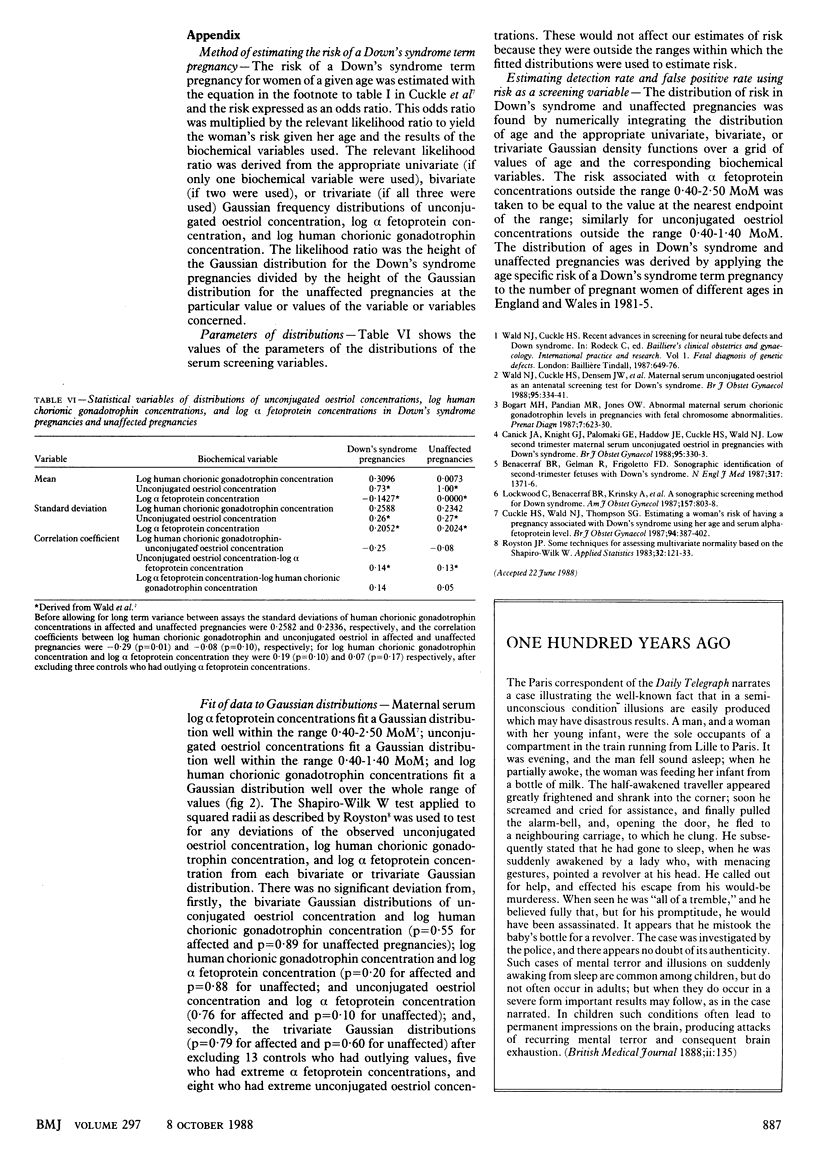Abstract
The possibility of improving the effectiveness of antenatal screening for Down's syndrome by measuring human chorionic gonadotrophin concentrations in maternal serum during the second trimester to select women for diagnostic amniocentesis was examined. The median maternal serum human chorionic gonadotrophin concentration in 77 pregnancies associated with Down's syndrome was twice the median concentration in 385 unaffected pregnancies matched for maternal age, gestational age, and duration of storage of the serum sample. Measuring human chorionic gonadotrophin in maternal serum was an effective screening test, giving a lower false positive rate (3%) at a 30% detection rate than that for maternal age (5%) and the two existing serum screening tests, unconjugated oestriol (7%) and alpha fetoprotein (11%). The most effective screening results were obtained with all four variables combined; at the same 30% detection rate the false positive rate declined to 0.5%. The new screening method would detect over 60% of affected pregnancies, more than double that achievable with the same amniocentesis rate in existing programmes (5%), and could reduce the number of children born with Down's syndrome in the United Kingdom from about 900 a year to about 350 a year.
Full text
PDF




Selected References
These references are in PubMed. This may not be the complete list of references from this article.
- Benacerraf B. R., Gelman R., Frigoletto F. D., Jr Sonographic identification of second-trimester fetuses with Down's syndrome. N Engl J Med. 1987 Nov 26;317(22):1371–1376. doi: 10.1056/NEJM198711263172203. [DOI] [PubMed] [Google Scholar]
- Bogart M. H., Pandian M. R., Jones O. W. Abnormal maternal serum chorionic gonadotropin levels in pregnancies with fetal chromosome abnormalities. Prenat Diagn. 1987 Nov;7(9):623–630. doi: 10.1002/pd.1970070904. [DOI] [PubMed] [Google Scholar]
- Canick J. A., Knight G. J., Palomaki G. E., Haddow J. E., Cuckle H. S., Wald N. J. Low second trimester maternal serum unconjugated oestriol in pregnancies with Down's syndrome. Br J Obstet Gynaecol. 1988 Apr;95(4):330–333. doi: 10.1111/j.1471-0528.1988.tb06601.x. [DOI] [PubMed] [Google Scholar]
- Cuckle H. S., Wald N. J., Thompson S. G. Estimating a woman's risk of having a pregnancy associated with Down's syndrome using her age and serum alpha-fetoprotein level. Br J Obstet Gynaecol. 1987 May;94(5):387–402. doi: 10.1111/j.1471-0528.1987.tb03115.x. [DOI] [PubMed] [Google Scholar]
- Lockwood C., Benacerraf B., Krinsky A., Blakemore K., Belanger K., Mahoney M., Hobbins J. A sonographic screening method for Down syndrome. Am J Obstet Gynecol. 1987 Oct;157(4 Pt 1):803–808. doi: 10.1016/s0002-9378(87)80059-5. [DOI] [PubMed] [Google Scholar]
- Wald N. J., Cuckle H. S., Densem J. W., Nanchahal K., Canick J. A., Haddow J. E., Knight G. J., Palomaki G. E. Maternal serum unconjugated oestriol as an antenatal screening test for Down's syndrome. Br J Obstet Gynaecol. 1988 Apr;95(4):334–341. doi: 10.1111/j.1471-0528.1988.tb06602.x. [DOI] [PubMed] [Google Scholar]



